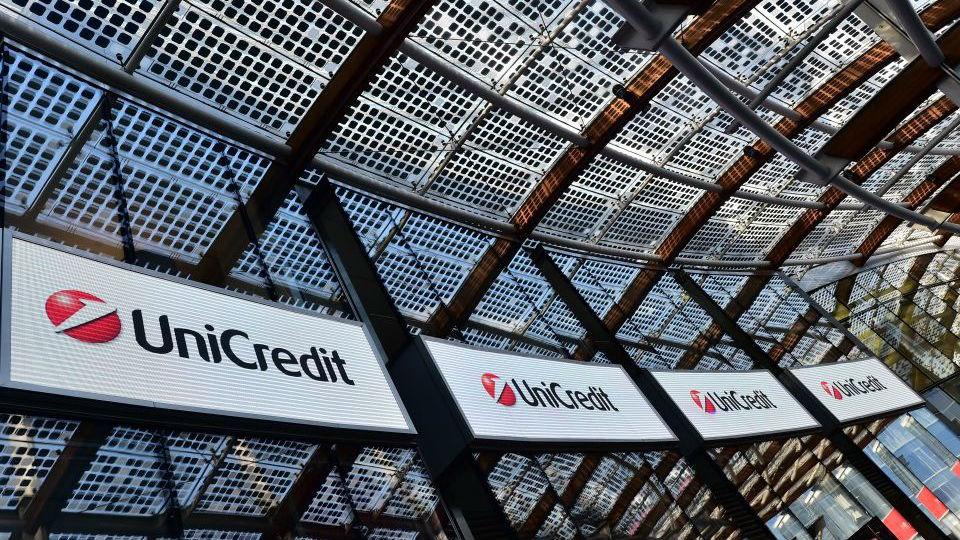Unicredit announces Italy's biggest-ever rescue fundraising
Rights issue will clear £14bn of bad loans from balance sheet and cut 14,000 jobs

A free daily email with the biggest news stories of the day – and the best features from TheWeek.com
You are now subscribed
Your newsletter sign-up was successful
Italy's largest banking group, Unicredit, has announced the country's largest ever fundraising to prevent it from failing under a mountain of bad debts.
The bank is to raise €13bn (£11bn) of new money from shareholders in January, says Reuters.
Bosses say the money will be used to "mop up" a total of €17bn (£14bn) of bad debts on the bank's balance sheet.
The Week
Escape your echo chamber. Get the facts behind the news, plus analysis from multiple perspectives.

Sign up for The Week's Free Newsletters
From our morning news briefing to a weekly Good News Newsletter, get the best of The Week delivered directly to your inbox.
From our morning news briefing to a weekly Good News Newsletter, get the best of The Week delivered directly to your inbox.
It is part of a wider restructuring plan that will also see 14,000 jobs cut and 900 branches close to cuts millions from annual running costs.
"The bank aims to get its core capital ratio - a key measure of financial strength - above 12.5 per cent by 2019, as well as post net profits of €4.7bn [£3.9bn] and resume dividend payments that year," says the BBC.
Markets reacted warmly and Unicredit's shares rose by as much as 15 per cent following the announcement yesterday. Trading dipped back close to six per cent today, but at €2.64, remains around 30 cents above its recent low reached earlier this week.
As a sign of its travails, however, the bank is down about 50 per cent over the past year.
A free daily email with the biggest news stories of the day – and the best features from TheWeek.com
Unicredit is considered "the only Italian bank deemed important to the stability of the global financial system", says Reuters, and has been "hit by profitability concerns, bad loans and a weaker balance sheet than major European rivals".
Its rival, Monte dei Paschi, the world's oldest bank, continues its own efforts to secure €5bn (£4.2bn) of new funding to avoid a government bailout.
Italian banks have been struggling under the weight of a €360bn (£300bn) toxic loan hangover since the financial crisis. They have also been rocked by the fall of Matteo Renzi's government this month and the resulting political instability.
-
 Switzerland could vote to cap its population
Switzerland could vote to cap its populationUnder the Radar Swiss People’s Party proposes referendum on radical anti-immigration measure to limit residents to 10 million
-
 Political cartoons for February 15
Political cartoons for February 15Cartoons Sunday's political cartoons include political ventriloquism, Europe in the middle, and more
-
 The broken water companies failing England and Wales
The broken water companies failing England and WalesExplainer With rising bills, deteriorating river health and a lack of investment, regulators face an uphill battle to stabilise the industry
-
 Can the UK avoid the Trump tariff bombshell?
Can the UK avoid the Trump tariff bombshell?Today's Big Question President says UK is 'way out of line' but it may still escape worst of US trade levies
-
 Five years on, can Labour's reset fix Brexit?
Five years on, can Labour's reset fix Brexit?Today's Big Question Keir Starmer's revised deal could end up a 'messy' compromise that 'fails to satisfy anyone'
-
 Why au pairs might become a thing of the past
Why au pairs might become a thing of the pastUnder The Radar Brexit and wage ruling are threatening the 'mutually beneficial arrangement'
-
 Brexit: where we are four years on
Brexit: where we are four years onThe Explainer Questions around immigration, trade and Northern Ireland remain as 'divisive as ever'
-
 Is it time for Britons to accept they are poorer?
Is it time for Britons to accept they are poorer?Today's Big Question Remark from Bank of England’s Huw Pill condemned as ‘tin-eared’
-
 Is Brexit to blame for the current financial crisis?
Is Brexit to blame for the current financial crisis?Talking Point Some economists say leaving the EU is behind Britain’s worsening finances but others question the data
-
 Labour shortages: the ‘most urgent problem’ facing the UK economy right now
Labour shortages: the ‘most urgent problem’ facing the UK economy right nowSpeed Read Britain is currently in the grip of an ‘employment crisis’
-
 Will the energy war hurt Europe more than Russia?
Will the energy war hurt Europe more than Russia?Speed Read European Commission proposes a total ban on Russian oil